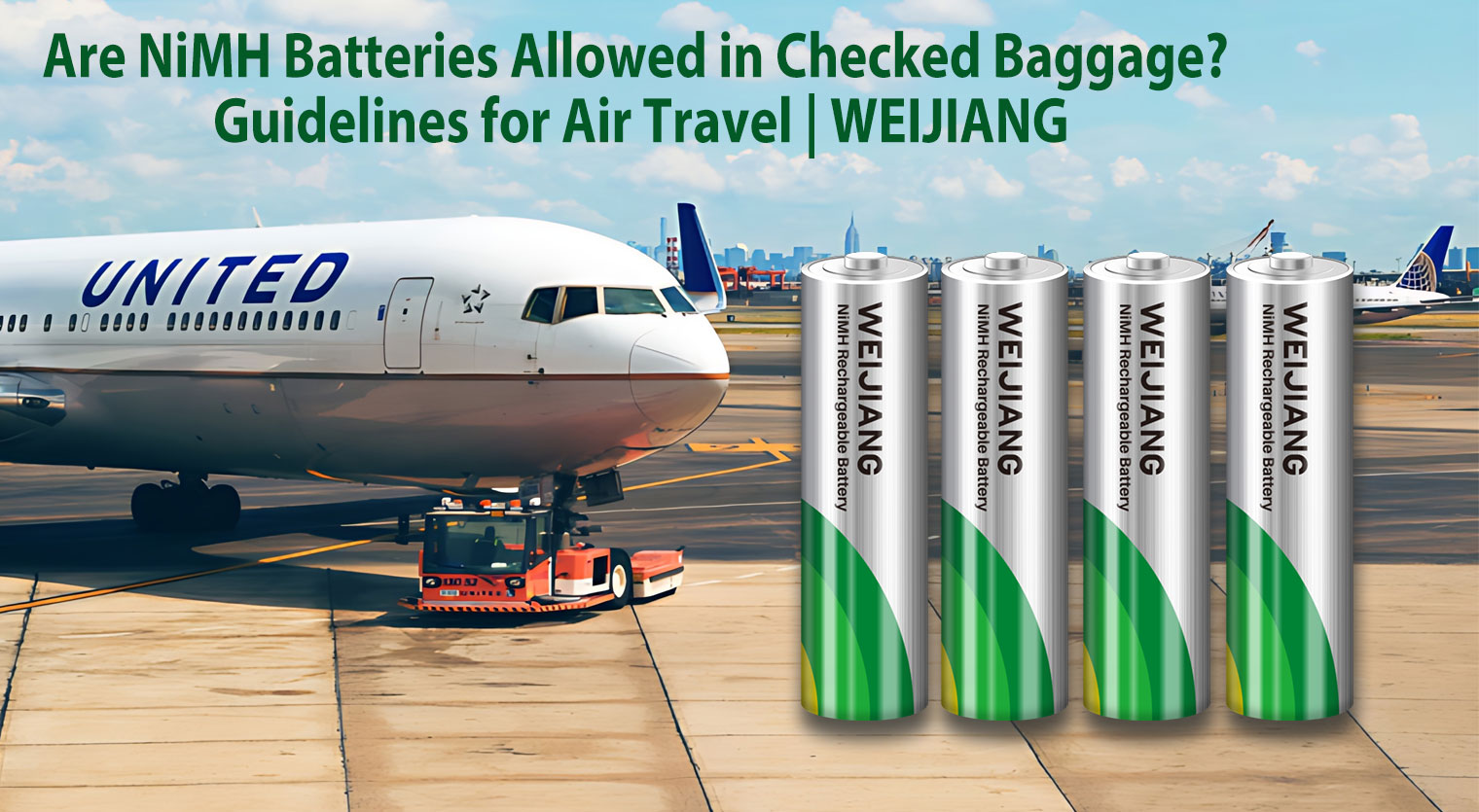When preparing for air travel, it's essential to understand the rules and regulations surrounding the items you can bring on board. Batteries, such as Nickel-Metal Hydride (NiMH) batteries, are commonly used in electronic devices and can raise questions about their transportation in checked baggage. In this article, we will explore the guidelines set by aviation authorities regarding the transport of NiMH batteries in checked baggage and provide clarity on how to handle them appropriately during air travel.

Understanding NiMH Batteries
NiMH batteries are rechargeable power sources widely used in portable electronic devices, including cameras, laptops, and smartphones. They offer a higher energy density compared to older battery technologies like Nickel-Cadmium (NiCd) batteries and are considered safer and more environmentally friendly. However, due to their chemical composition, NiMH batteries must be handled with care and follow specific transportation guidelines, especially when it comes to air travel.
Transportation Security Administration (TSA) Guidelines
The Transportation Security Administration (TSA) in the United States provides guidelines for the transportation of batteries in both carry-on and checked baggage. According to the TSA, NiMH batteries are generally allowed in both types of baggage; however, there are important considerations to keep in mind:
a. Carry-On Baggage: NiMH batteries are permitted in carry-on baggage, and it is recommended to keep them in their original packaging or in a protective case to prevent short-circuits. If the batteries are loose, they should be covered with tape to insulate the terminals.
b. Checked Baggage: NiMH batteries are also allowed in checked baggage; however, it is advisable to protect them from damage by placing them in a sturdy container or within a device. This provides an additional layer of protection against accidental short-circuits.
International Air Travel Regulations
If you're traveling internationally, it's important to familiarize yourself with the regulations of the specific airline and the country you are flying to or from, as they may have additional restrictions or requirements. While regulations may vary, the International Civil Aviation Organization (ICAO) and the International Air Transport Association (IATA) generally follow similar guidelines to the TSA.
a. Quantity Limits: The ICAO and IATA have established maximum quantity limits for batteries, including NiMH batteries, in both carry-on and checked baggage. The limits are typically based on the watt-hour (Wh) rating of the batteries. It is crucial to check the specific limits set by your airline and adhere to them.
b. Contact the Airline: To ensure compliance with regulations, it is recommended to contact your airline directly or visit their website for detailed information on battery transportation rules. They can provide specific guidance and any additional requirements that may apply.
Additional Precautions for Battery Transportation
To ensure a smooth travel experience with NiMH batteries, consider the following precautions:
a. Terminal Protection: To prevent accidental discharge, cover the battery terminals with insulating tape or place each battery in an individual plastic bag.
b. Original Packaging: Whenever possible, keep NiMH batteries in their original packaging or store them in a protective case designed for battery transport.
c. Carry-On Option: To avoid potential damage or loss, it is generally recommended to carry important or valuable electronic devices and batteries in your carry-on baggage.
d. Check with Airlines: If you have any doubts or questions about the transportation of NiMH batteries, contact your airline in advance. They can provide the most accurate and up-to-date information based on their specific policies and procedures
Conclusion
When traveling by air, it's crucial to understand the rules and regulations regarding the transportation of batteries, including NiMH batteries. While NiMH batteries are generally allowed in both checked and carry-on baggage, it is essential to follow the guidelines set by aviation authorities and individual airlines. By taking the necessary precautions, such as protecting the terminals and adhering to quantity limits, you can ensure a safe and hassle-free travel experience. Always check with your airline for the most up-to-date information, as regulations may vary. Remember, responsible battery handling contributes to the safety and security of air travel for everyone involved.
Post time: Dec-27-2023





